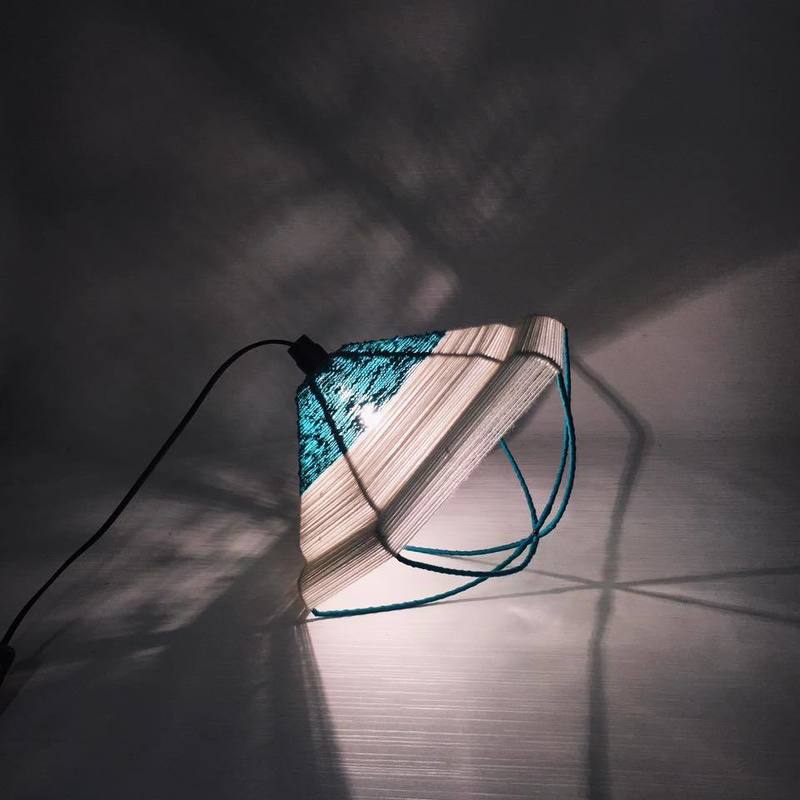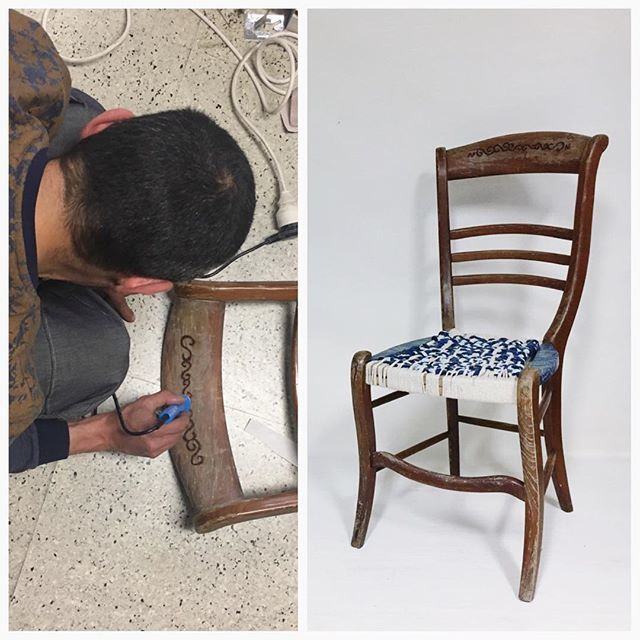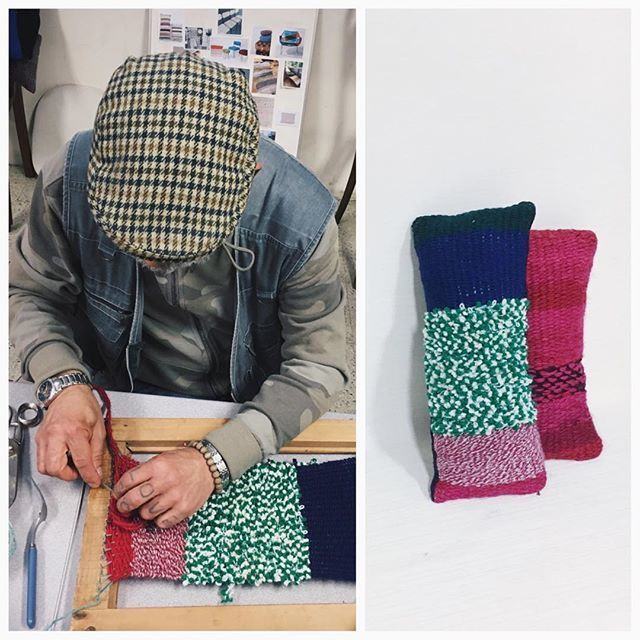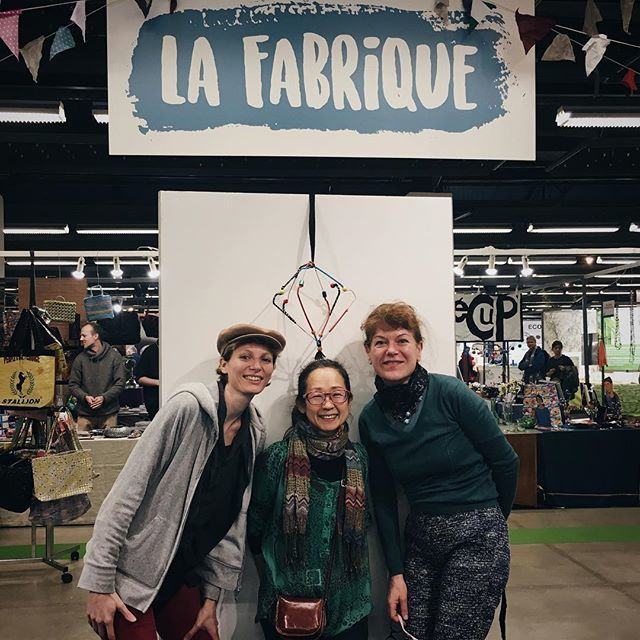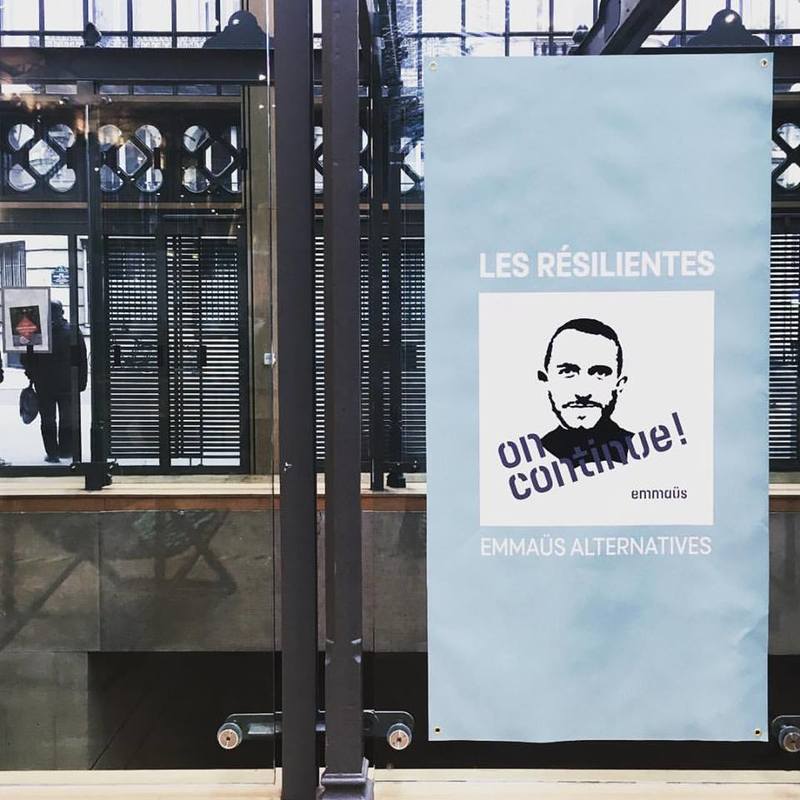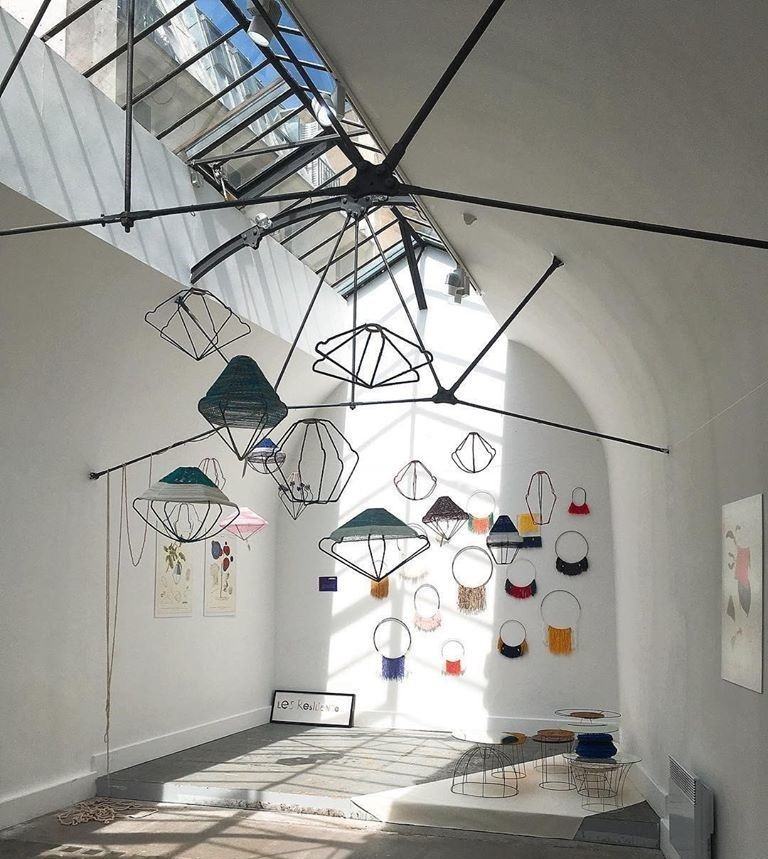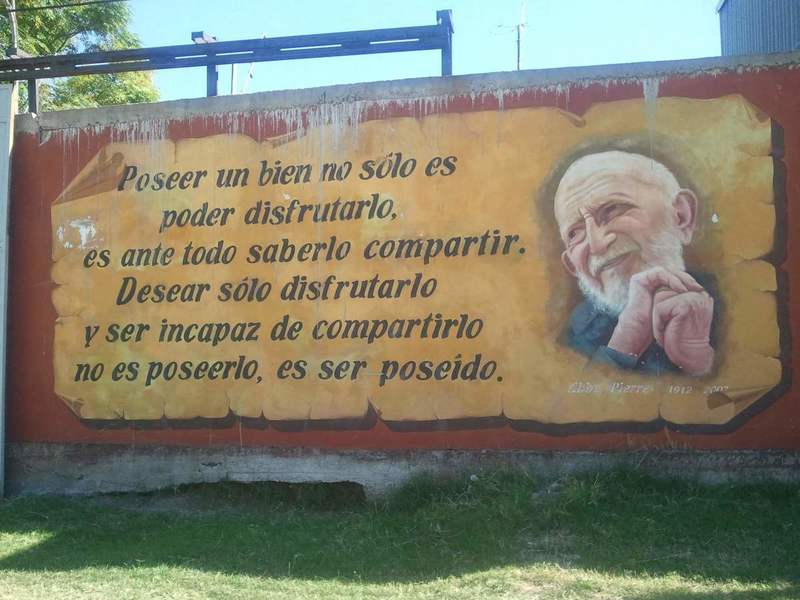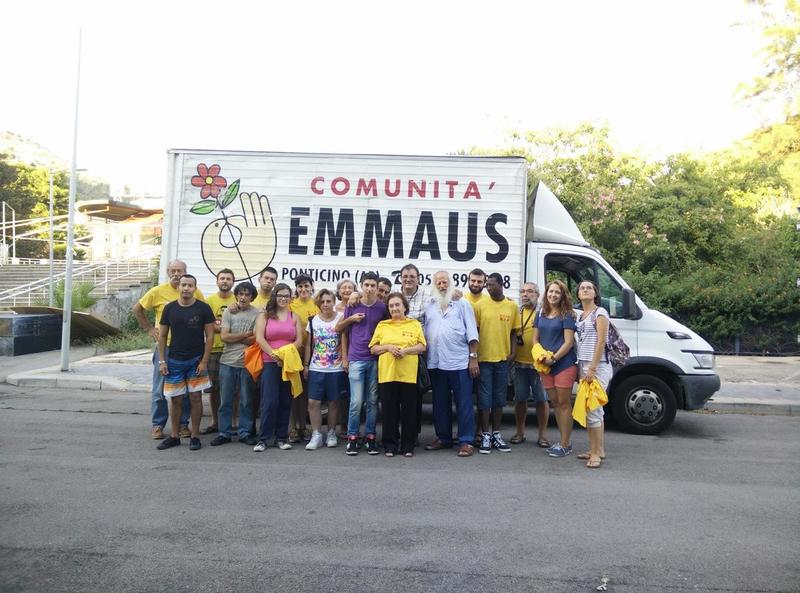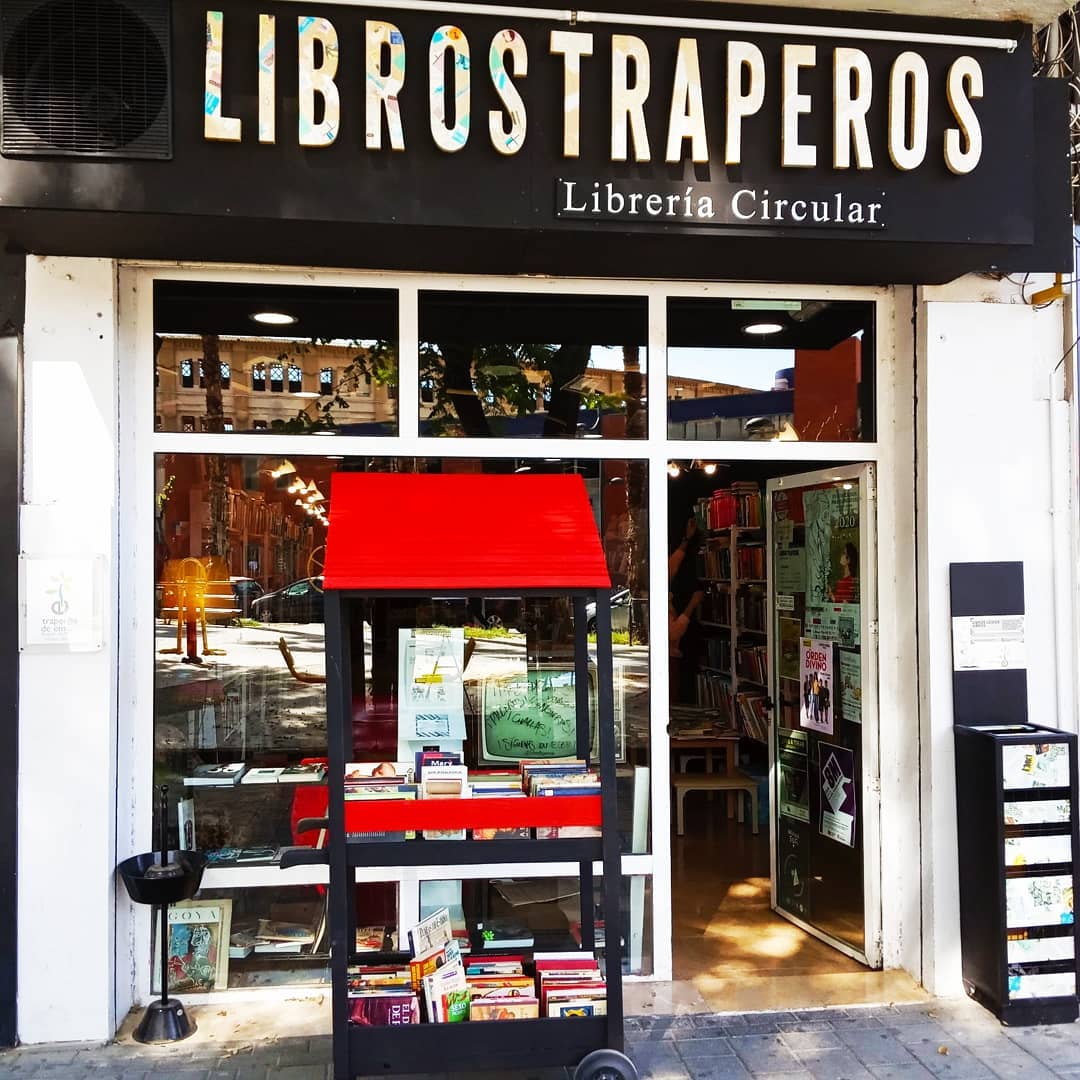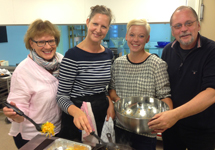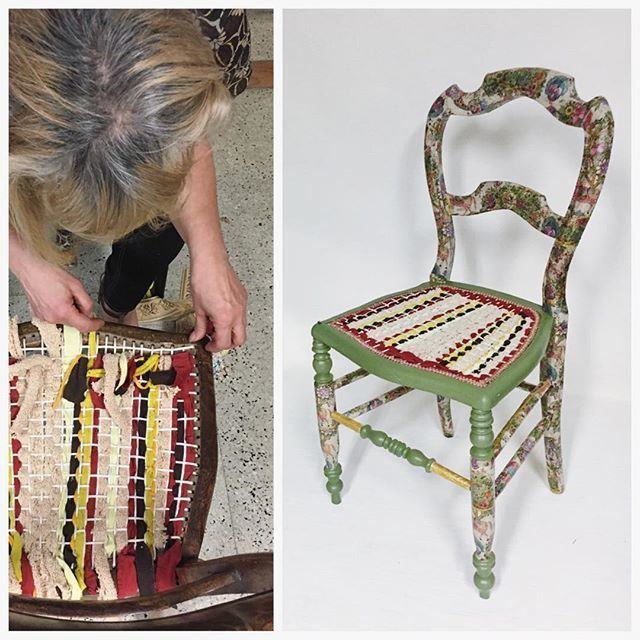
Montreuil – France
'Resilient': Re-insertion through Design
THE CONTEXT OF YOUR INITIATIVE
Since 2014 Emmaus Alternatives has worked on promoting creativity with people on get back to work schemes thanks to sewing workshops. In these workshops they focus on adjustments, customisation and creation.
The ‘Resilient’ project is part of this dynamic – it involves both research and action and helps portray the value of both human beings and objects.
The project has been supported by Eugénie deLarivière, a designer of objects who specialises in teaching design, who shares Emmaus’ vision of the future in terms of social aspects, solidarity, ecology and the job market. Emmaus Alternatives decided to formalise its creative ambitions and experiments in order to reach out to more people, and to do so using our own methodology and tools.
This new creative workshop uses ‘think design’ teaching methods with people on get back to work schemes to help them develop cross-disciplinary skills. The workshop helps encourage new ways of thinking, reacting, adapting and innovating as well as regaining self-confidence by recognising one’s own qualities.
The workshop is linked to the association’s income-generating activities – giving value to objects that would normally have been thrown away by making the design of these objects more attractive. These new designs will also help the association reach out to a new, wider client base.
At the same time the project helps us reach our environmental goals of reducing waste and raising awareness amongst the general public about collection, re-use and recycling.
The Goal of the Project
1. Regaining Self-confidence: a Pre-requisite for the Job Market
The psychiatrist and psychoanalyst Boris Cyrulnik invented the term ‘resilience’ which is about an individual’s ability to overcome challenges. He explained in a conference about traumatic memories that “art is about transforming the horror of the human condition”.
Creativity helps us to express our frustrations, to provide them with meaning and to make them into something new. Thus the obstacles we face in life are often what help us become more resilient.
The ‘Resilient’ project follows on from the sewing workshop mentioned above, it too helps portray the value of both human beings and objects. The re-insertion programme for this activity will be inspired by the teaching methods used in design schools – boosting creativity, independence and know-how and helping encourage new ways of thinking, reacting, adapting and innovating.
The initiative boosts projects that promote skills, helping people to rebuild relationships of trust and to regain self-confidence by recognising one’s own qualities.
2. The Importance of Cross-disciplinary Skills for People on our Re-Insertion Schemes
Cross-disciplinary skills are strongly promoted as they are often pre-requisites for jobs and help people stay in work in the long term. Some people have all the technical skills required for their job but are not good at working as part of a team, or at being autonomous, or at communicating in the appropriate way with internal and external partners, etc. Such skills are essential for job-seekers and thus they are a key focus in our re-insertion schemes.
We try to offer a range of options on the schemes so that people can have the opportunity to develop the specific skills they require to get back into work. The ‘Resilient’ project is meant to be a powerful, innovative way of helping people to develop these skills.
3. The Goal of Reaching Zero Waste
Today people are producing more and more waste due to our rising rate of consumption and this has a negative impact on the environment, our health and the economy. It has an impact on all of us: consumers, producers, re-use structures, citizens, tax payers – all of us could and should fight for better waste management.
Upcycling is an innovative way of limiting the amount of waste we create. Upcycling is about re-using an object or material in a new way, transforming the item and adding value to it.
For Emmaus, one of the main stakeholders in re-use in France with its collecting and redistributing of second-hand objects, the objective is to get involved in this trend of upcycling as it is a trend that will continue to grow and that is in line with our values (redistribute, re-use, recycle).
4. The Lack of Environmental Awareness, Knowledge and Know-How
We have noted that both the people on our re-insertion schemes and our users lack awareness about environmental matters and do not have enough information to be stakeholders in the fight to protect the environment, to produce less waste and to better manage this waste.
5. The Need to Diversify our Commercial Opportunities
Selling on second-hand textiles, linen and shoes is still one of the sectors for ‘Insertion through Economic Activity’ which is fairly profitable but the economic model of insertion schemes as a whole is still quite stretched. The current low oil price reduces costs for producers of new clothes, penalising the second-hand sector. When stakeholders from the for-profit sector arrive in the market they sometimes use aggressive tactics to gain market share in the second-hand sector.
Thus we must continue to make our ‘traditional’ activity more efficient whilst trying to identify new activities which could be economically profitable as well as enriching and strengthening our efforts to help our staff members get back into the job market. That is the idea behind the ‘Resilient’ project.
THE ACTIVITIES CARRIED OUT AS PART OF YOUR INITIATIVE
The Resilient X Emmaus Alternatives is committed to a re-launch of materials, people and ideas through a programme for social and professional re-insertion thanks to design.
The Resilient X Emmaus Alternatives is a re-design studio that works for re-insertion through design. This project, launched and piloted by designer Eugénie deLarivière, is part of an adventure that started with:
A gamble: putting together a collection of unique objects with a contemporary design, using the objects collected and transformed by those on the Emmaus Alternatives get back to work scheme.
An analysis: about creativity as a lever for social and professional re-insertion. Launching creative workshops that combine staff members on our get back to work schemes with people that we host during the daytime.
The ‘Resilient’ project was thus split into two sections:
Manufacturing: the production department for the ‘Resilient’ collections (upcycled objects made with resources that normally would have ended up in a bin) – creative, long-term recycling with 3 staff members on fixed-term insertion contracts (year 1)
The Lab: a series of creative workshops with re-insertion staff from different positions (sorting, sales, delivery) and with the users of our social department (daytime welcome, housing and our Active Solidarity Income service, etc.).
There are, therefore, two ways that the beneficiaries can participate in the project:
In ‘manufacturing’: 3 staff members on fixed-term insertion contracts (year 1) are part of the team led by the Designer; this team manages the project from A to Z (from production to sales). The goals of the project are that staff members are given responsibilities, that they become polyvalent and creative, take initiative and focus on reaching results.
In ‘The Lab’: 40 staff members (5 groups of 8 people (5 re-insertion staff and 3 users of the social department) work one half-day per week over a 2-month period) participate, over a one-year period, in eco-design workshops that have 3 goals: to create new ‘zero waste’ objects, to develop the cross-disciplinary skills of those participating and to raise awareness about environmental matters, helping the participants to change their individual/family’s habits in terms of how they manage waste disposal.
WHO IS INVOLVED FROM OUR GROUP?
The ‘Resilient’ team includes:
1 permanent staff member (project manager)
3 staff members on fixed-term insertion contracts
1 volunteer
This project is about the commitment of all staff – the sorting of textiles and objects to identify what we could use for our collections, the work of our delivery and sales teams, the advice and support provided by the communication team, etc.
WHICH PARTNERS ARE YOU WORKING WITH ON THIS INITIATIVE?
Photos
FUTURE PROSPECTS
Our initiative truly began in January 2017 so it is difficult to analyse its success at such an early stage.
The activity includes 3 staff members on fixed-term insertion contracts who work on producing 4 collections of upcycled objects.
We have attended several social, environmental and design sector events (this list is not exhaustive): the Abbé Pierre event at République Square, Second Square at the Carreau du Temple, the Vivre Autrement [Live Differently] Salon, the Colibris movement’s appeal at La Villette, the Paris Trade Fair, D’days at la Galerie Joseph and the Emmaus Salon in Paris.
We have, so far, ran two Labs with 8 participants: 4 beneficiaries of our social department and 4 re-insertion staff.
WOULD YOU LIKE TO ADD ANY INFORMATION ABOUT YOUR INITIATIVE?
WHAT ARE YOUR PROSPECTS?
We will have a volunteer joining us from September to help advise us on how to market our creations.
We are also looking for new financial partners to help with the development of our workshops.
We would like to open our workshops up to art therapists, psychologists and sociologists that could provide us with ideas about how to use creativity as a lever for social and professional re-insertion.
Check out our Facebook and Instagram accounts @Lesrésilientes!
We hope to see you soon at our shop on rue Quincampoix!
